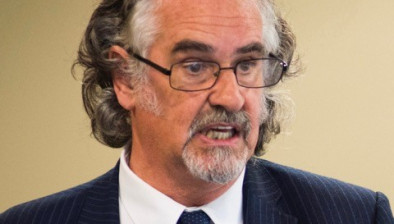England: Last minute U-turn on HMO requirements for asylum seekers

The UK Government has withdrawn plans to exempt accommodation for asylum seekers from houses in multiple occupation (HMO) licensing requirements.
The U-turn came in the face of a legal challenge to draft regulations that would have removed HMO regulations for landlords accommodating asylum seekers in their buy-to-let properties.
The government argued that by removing the requirement for landlords to abide by HMO regulations, officials could increase the availability of housing available to accommodate asylum seekers.
Under the changes, which will now not go-ahead, landlords of asylum seekers in England and Wales would no longer have to register with local authorities.
The rules would allow landlords to house asylum seekers for two years without obtaining a HMO licence – a standard requirement for any landlord renting to more than one household in a single property.
But eight asylum seekers challenged the draft regulations and, hours before a high court hearing yesterday, the government withdrew the policy. It will now revert to the previous position that everyone living in an HMO has the same rights to protection.
The eight asylum seekers argued that the government had acted unlawfully in adopting the policy and that housing secretary Michael Gove had no power to make the draft regulations, which frustrated the purpose of the licensing scheme.
Jeremy Bloom of Duncan Lewis solicitors, representing the asylum seekers, said: “The government’s last-minute withdrawal of regulations that would have reduced protections for asylum seekers housed by the Home Office is a spectacular U-turn.
“The asylum seekers now have the enduring protection that they will not be placed in accommodation which does not meet licensing standards, which are so vital to fire safety and to prevent overcrowding.”
The Chartered Institute of Environmental Health (CIEH) welcomed the government U-turn.
Zena Lynch, a member of the CIEH Housing Advisory Panel who is also an Honorary Associate Professor in the Department of Environmental Health and Risk Management at the University of Birmingham, provided witness evidence on behalf of CIEH for a judicial review of the draft regulations.
Louise Hosking, an executive director at the institute, said: “These draft regulations risked creating a two-tier system for enforcement of standards in HMOs. They could also have incentivised unscrupulous landlords to move into the supply of asylum-seeker accommodation.
“We are immensely proud to have supported the legal challenge to these draft regulations on behalf of our members and to have played an important part in bringing about a successful outcome.
“We were able to provide a unique perspective on the issue as the body representing the people responsible for HMO licensing enforcement.”
A government spokesperson commented: “Our success maximising the use of existing sites and delivering alternative accommodation means it is no longer necessary to pursue the removal of licensing requirements for houses in multiple occupation.
“We are making significant progress moving asylum seekers out of hotels, which cost UK taxpayers £8.2m a day. We have already returned the first 50 to their communities and we will exit more in the coming months.
“We continue to keep all policies under review as we work with local authorities to identify alternative accommodation options which are more suitable for local communities.”







